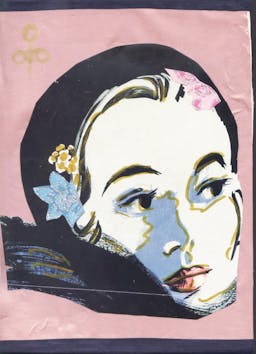UN Human Rights Council Holds First-ever Panel Discussion On Women Human Rights Defenders (WHRDs)
Jan 21, 2015
Story
Sunila Abeysekera represented WHRD
International Coalition on UNHRC panel
The WHRD International Coalition was represented on the panel by Sunila Abeysekera and the Meso-American Initiative of WHRDs was represented through a video statement by Marusia López Cruz. AWID is proud to be a member of both collaboratives and congratulates the speakers on relaying the experiences and concerns of WHRDs from around the world.
The 20th session of the United Nations Human Rights Council (UN HRC) convened a 3-hour panel on 26 June on WHRDs as part of its annual full-day discussion on women’s human rights. The panel explored situations of violence against WHRDs and violations of their rights, analyzed the contexts that exacerbate these situations, and presented recommendations to the UN System and States on designing and implementing gender-specific programs for protection of WHRDs.
The panel was moderated by UN HRC President Ms. Laura Dupuy Lasserre and included Ms. Margaret Sekaggya, UN Special Rapporteur on the situation of human rights defenders; Ms. Sunila Abeysekera, WHRD International Coalition; Mr. José de Jesus Orozco, Special Rapporteur on human rights defenders, Inter-American Commission on Human Rights; and Mr. Nazar Abdelgadir, Geneva Institute for Human Rights. The full session can be watched online at the UN Webcast.
In her opening remarks on behalf of the Deputy High Commissioner for Human Rights, Mona Rishmawi affirmed the responsibility of the UN HRC to promote protection mechanisms for WHRDs, to “enable them to carry out their work in safety, free from discrimination and violence.”
Representing the WHRD International Coalition, Sunila Abeysekera, presented an analysis of three trends of violations against WHRDs, highlighting:
1.the range of brutal violations suffered by WHRDs working on issues of people’s rights to land, water and a clean environment.
2.violations confronted by WHRDs who work on reproductive rights and on rights related to sexuality.
3.violations confronting WHRDs who organize and mobilize communities facing violations of their rights and who demand compliance with national and international norms and standards from their governments and from private actors, especially multinational and transnational corporations.
A key issue raised by the panelists, as well as in the comments from State representatives in the session, relates to the widespread impunity enjoyed by perpetrators of violence against WHRDs and violations of their rights. UN Special Rapporteur Margaret Sekaggya stated that recognition of WHRDs must include equal access to justice, prompt and impartial investigation of violations of their rights, and punishment of perpetrators – whether they be State or non-State actors. Additionally, Ms. Sekaggya called on authorities to recognize the valuable contributions of WHRDs to upholding human rights.
Representatives of civil society and non-governmental organizations (NGOs) also had the opportunity to participate in the discussion. AWID facilitated a video statement submitted by the Meso-American Initiative of WHRDs, in collaboration with JASS, Consorcio Oaxaca, UDEFEGUA, the Central American Women’s Fund, and Colectiva Feminista.
Marusia López Cruz opened by remarking on the grave situation of violence against WHRDs in Meso-America, where 24 assassinations of WHRDs took place in Mexico and Central America during 2010 and 2011, all of which remain in impunity. The Meso-American Initiative of WHRDs presented the following needs at the UN HRC: effective protection measures and mechanims, recognition of the specific forms of violence that WHRDs face, combating gender discrimination, and extension of protection mechanisms to WHRD’s families and organizations. The UN system was called on to be much stronger with the States when WHRDs are attacked, to influence the development of human rights-based security measures and to ensure the effective implementation of protective mechanisms with a gender perspective.
The International Service for Human Rights (ISHR), member of the WHRD International Coalition raised concern for WHRDs defending land rights, particularly 13 WHRDs in Cambodia who were recently sentenced for up to two and half years in prison. The representative from ISHR described the recent reports of firebomb attacks on abortion clinics in the United States as an example that WHRDs are at risk both in the global North and South. WHRDs working on sexual and reproductive rights and rights related to sexuality are frequently in the eye of the storm, such as the ongoing harassment and intimidation of LGBT defenders in Uganda, with a recent miniterial announcement to ban 38 NGOs accused of “promoting homosexuality”.
The panel discussed the need for effective protection, with several key elements including documentation of violence against WHRDs and violations of the rights; coordination between actors including the UN, States, and national human rights institutions for coherent protection policies; and an agile response from human rights bodies regarding urgent risks and need. Importantly, WHRDs must be at the heart of the definition of protection mechanisms. As stated by ISHR and noted by the Special Rapporteur on HRDs in her 2010 report to the Council, “ultimately the protection of women human rights defenders lies in a transformation of contexts where inequality, violence and patriarchal attitudes and practice inform women human rights defenders’ experience.”
In her closing remarks, Sunila Abeysekera highlighted the importance of increasing visibility of WHRDs who work at the local and community level, and raised concern about the shrinking space for participation of civil society, and shrinking resources for WHRDs to conduct their work. Responding to questions about religion, culture and tradition, she presented the WHRD International Coalition’s view that most traditions have positive aspects regarding women’s equality and women’s role in public life. The coalition challenges the static notion of culture and tradition, and affirms that WHRDs are part of these cultures and traditions and must be recognized as such.
You can watch the recorded video of the panel on Women Human Rights Defenders at the 20th session of the UN Human Rights Council online at the UN Webcast.




